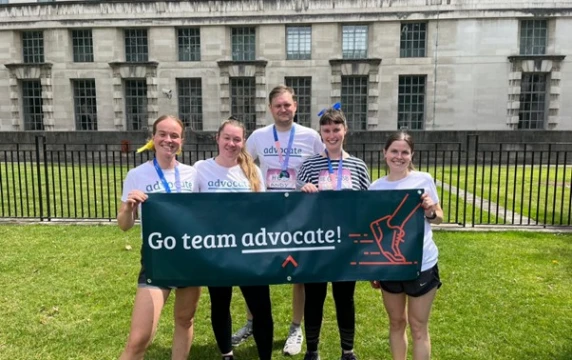| Listen to Lady Justice Elisabeth Laing on the Legal 500 podcast celebrating Advocate's 25th anniversary here. |
As a judge, what difference does it make to you to have a LiP represented, even if only at the last minute, or for one hearing?
It makes a big difference to me, as a judge, when a litigant is represented. Litigants in person know the facts of their cases very well, but do not always know which facts are legally significant. Nor, on an appeal against a decision they disagree with (especially if it is an appeal on a point of law) are they always able to detect, or to explain, how the judge below might have erred in law. A representative, even when he or she has been given the case at the last moment, can make a huge difference, by doing what trained lawyers are good at; that is, refining the complaints raised by the litigant into one or two crisp points. This is especially so in oral or written applications for leave to appeal (or equivalent applications), for example, in the Employment Appeal Tribunal (EAT). More than one oral application may be listed in a day, and there may be a lot of material to read for each. Representation can make the difference between a grant of leave to appeal and a refusal. Moreover, once leave has been given, it may be easier for the litigant to persuade a pro bono advocate to represent him or her on the full appeal.
Why should barristers undertake pro bono? How will it advantage them?
There are many reasons why barristers should think carefully before turning down any opportunity to do pro bono work. I can appeal to their enlightened self-interest. First, it can be a nice change to do a case for nothing, in order, quite simply, to help the litigant and the court. That consideration can be enough for the generous and public-spirited advocate. Second, depending on the kind of work the advocate normally does, it can give an instructive insight in to the problems of others. Third, helping the court not only serves the interests of justice, but, if the pro bono advocate does the case well, may make a favourable impression on the judge, and may help that advocate to build a reputation with that judge, and with other judges to whom that judge may speak, if asked for a view. Fourth, all advocates, at all stages of their careers, benefit from court experience. Court experience, especially in a difficult case with a difficult judge, improves an advocate’s skills. Fifth, particularly if the outing is a successful one, but even if it isn’t, barristers’ clerks are delighted to be able to describe their barristers’ extensive court experience to solicitors, as it is an effective way of persuading a solicitor to instruct counsel.
Did you undertake pro bono earlier in your career and how did it benefit you?
I did do pro bono work at the Bar, and I think it helped me in all the ways I have described. I found it demanding and very difficult and frustrating at times, but also very fulfilling.
Please tell me about a memorable pro bono experience (either work that you undertook or that was undertaken in front of you).
I have already referred to the EAT. I represented litigants in pro bono cases at the equivalent of leave stage, under the ELAAS scheme (as it then was). I did find it odd, years later, to be the judge who was listening to advocates doing the same job. I think they were all much better than I was. I can think of one morning, when a barrister did two ELAAS cases in front of me. I had read the papers, as I thought, very carefully in the time I had available to read before the hearings. I had not been able to find any arguable points of law in either case. This barrister, however, was able to persuade me that there were arguable points in each case. I was very grateful to him, because, while it is possible that each litigant in person, without his representation, might have guided me to the points in the hearing, I cannot be confident that they would have done.







